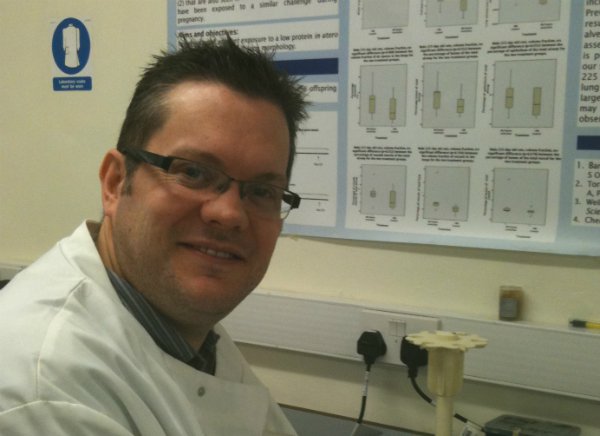New study could help tailor treatment for most common type of leukaemia
New findings by scientists at the University of Southampton could help to predict how people with the most common form of leukaemia will respond to chemotherapy.
The researchers, who were funded by Blood Cancer UK, analysed DNA samples from over 600 people with chronic lymphocytic leukaemia (CLL) treated on clinical trials with chemotherapy, or chemotherapy combined with immunotherapy. They identified a ‘genetic signature’, found in one in five patients, linked to considerably longer survival times.
CLL is a slowly developing blood cancer, diagnosed in around 4,000 people each year in the UK. While it is not considered curable, patients who have no remaining signs of cancer after initial treatment are known to be more likely to have long periods of remission.
New targeted treatments for chronic lymphocytic leukaemia (CLL)
Treatment for CLL depends on how fast the disease develops. CLL develops quickly in some people, who need treatment soon after diagnosis, while others may never need treatment because they have no symptoms. Initial treatment usually consists of chemotherapy along with drugs called monoclonal antibodies. New targeted treatments have become available for patients who do not respond to this initial chemotherapy.
Although new targeted drugs, such as ibrutinib (which was approved for use on the NHS in 2017) have represented a step forward in the treatment of CLL, they are expensive and not all patients respond to them. The drugs are taken daily for an extended period of time, and some patients can experience side effects.
Screening techniques
The scientists used screening techniques to analyse the ‘epigenetics’ – biological mechanisms that can influence how and when genes are switched on and off – of CLL patients’ cancer cell samples. They showed that patients’ cancer cells fell into one of three epigenetic sub-groups.
Two in 10 patients had a ‘memory’ epigenetic signature, in which one-off chemotherapy can lead to long survival times; five in 10 had a ‘naïve’ epigenetic signature that did not respond as well to treatment; and three in 10 belonged to an intermediate group.
On average, patients treated with chemotherapy whose cancer cells contained the ‘memory’ epigenetic signature survived for nearly nine years compared to five years for patients with the ‘naïve’ epigenetic signature.
Findings from this study have proven the link between epigenetics and survival in people with CLL who are receiving chemotherapy-based treatments. Testing the epigenetic profile of CLL patients before they start treatment could help to identify those who gain long-lasting remission with conventional chemotherapy-based regimes, and pinpoint those who may need alternative treatments.
Improving diagnosis
Epigenetic changes (changes to how the DNA ‘script’ is read) occur in all cancers. These latest findings provide further evidence that epigenetic tests can improve diagnosis and guide doctors on the most suitable treatments for individual patients.
Epigenetic changes(changes to how the DNA ‘script’ is read) occur in all cancers. These latest findings provide further evidence that epigenetic tests can improve diagnosis and guide doctors on the most suitable treatments for individual patients.
Professor Jonathan Strefford, from the University of Southampton, said: “What we have found is that it is possible to identify patients who will respond extremely well to a one-off course of traditional chemotherapy, which can result in long-term remission and in some cases can be the equivalent to a cure.
“While new targeted drugs have led to significant improvements in treatment for CLL in patients who relapse after chemotherapy, many patients don’t want to be taking treatment every day.”
Dr Alasdair Rankin, our Director of Research, said: “There are an increasing number of effective treatments becoming available for people with chronic lymphocytic leukaemia. The key is to accurately tailor the right treatments to the right patients, as not everyone will respond in the same way. This valuable research could help doctors better understand which patients are benefiting most from chemotherapy, so that doctors and people with blood cancer can make informed choices about the best treatment for each person.”
Leukaemia samples used in the study were taken from three clinical trials – LRF CLL4, funded by Blood Cancer UK; ARCTIC, funded by the NIHR Health Technology Assessment programme and ADMIRE, which was funded by Roche.

